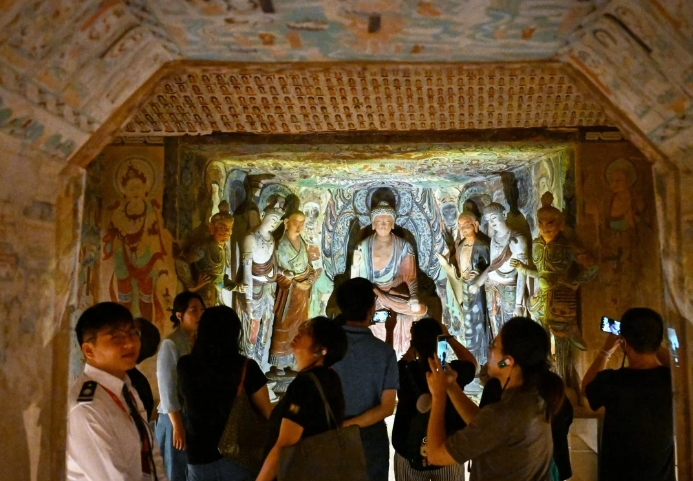The ancient city of Dunhuang, a Silk Road hub that welcomed Western merchants for centuries, may serve as a “perfect platform” to improve China-US relations, according to Neil Schmid, an American research professor and the first Western scholar hired by the Dunhuang Academy. Schmid studies the Mogao Caves, also known as the Thousand Buddha Grottoes, located in Gansu province.
The caves, dating back to AD 366, house not only Buddhist art and texts but also artefacts from Confucian, Taoist, Christian, and Hebrew traditions. This rich diversity reflects Dunhuang’s status as a cultural and religious melting pot from the 2nd to the 11th centuries. Schmid believes that the site’s historical inclusivity and cultural exchanges provide a foundation for fostering modern dialogue between nations, particularly China and the US.

